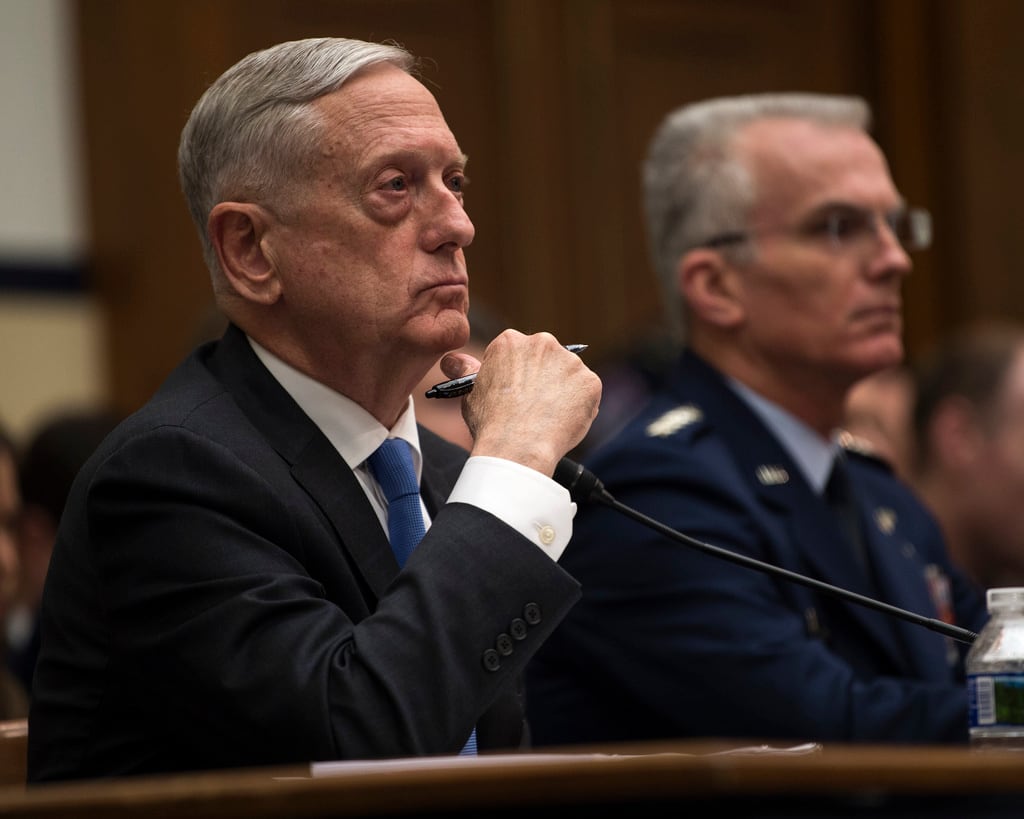WASHINGTON ― Under the recently released Nuclear Posture Review, the U.S. intends to produce a new sea-launched nuclear cruise missile ― part of a plan to directly put pressure on Russia’s nuclear forces.
But could it be part of a broader diplomatic effort to bring Russia in line with the existing Intermediate-Range Nuclear Forces Treaty? U.S. Secretary of Defense Jim Mattis appears hopeful it can.
The idea was floated by Greg Weaver, deputy director for strategic stability on the Joint Staff J5 directorate, during a Feb. 1 interview with reporters.
“Were Russia to agree to return to verifiable arms control measures to address that imbalance in nonstrategic nuclear forces, the U.S. might agree to limit or forgo [acquiring] a nuclear SLCM,” Weaver said then. “This is a response to Russian expansion of their capability and the nature of their strategy and doctrine. The United States is not arms racing. We are responding to Russian initiative.”
Mattis seemed to pick that thread up during a Feb. 6 House Armed Services Committee hearing, saying: “I want to make certain that our negotiators have something to negotiate with, that we want Russia back into compliance. We do not want to forgo the INF [Treaty], but at the same time we have options if Russia continues to go down this path.
“So the idea is, once again, to keep our negotiators negotiating from a position of strength. I don’t believe you can go into a negotiation and try to get something or nothing. I don’t think the Russians would be willing to give up something to gain nothing from us in terms of reductions.”
Asked specifically if the Pentagon would halt development on the SLCM if Russia returned to compliance with the INF Treaty, Mattis was hesitant but did not rule it out.
“I don’t want to say in advance of a negotiation and undercut our negotiators’ position [by saying] what we would or would not do. The point I would make is deterrence is dynamic, we have to deal with it as it stands today,” he said. “And in that regard, I believe we have to give our negotiators something with which to negotiate.”
But does the Pentagon intend to use the potential creation of an SLCM as a trade chip early on, or intend to go through with developing and producing the weapon first before negotiating with it?
Rebeccah Heinrichs, a nuclear analyst with the Hudson Institute, says the answer likely depends on Russia’s reaction, but believes the Pentagon is “serious” about developing the capability.
“It’s not like this is only being pursued strictly as a negotiating chip. No doubt the Pentagon will be happy to have it even if it doesn’t have the effect of forcing Russia to get serious about talks on INF,” she said.
More broadly, Heinrichs supports the idea of using the SLCM as a cudgel to get Russia to remove its ground-based cruise missiles from the field.
“Obama officials tried to persuade Russia to comply with the treaty, and obviously they were unsuccessful. Russia is now deploying those prohibited weapons. If we’re going to preserve INF, we have to enforce it,” she said.
However, Hans Kristensen, director of the Federation of American Scientists’ Nuclear Information Project, argues that idea is “flawed,” as the U.S. had a nuclear cruise missile in its arsenal in 2011 when Russia first started developing its INF-violating weapons system.
RELATED

“So why would a SLCM make them back down?” Kristensen said. “The idea to use SLCM to make Russia reduce its nonstrategic arsenal is strange because everyone knows it’s used to compensate for Russia’s inferior conventional forces. Increasing U.S. nonstrategic forces could make Russia further increase its nonstrategic forces.”
The other factor is America’s plan to begin research and development on a ground-based cruise missile, something Mattis hinted at in his comments. Such a weapon would be designed but not deployed, as the U.S. wants to stay within the INF Treaty’s rules — but it could provide a potential threat or trade-off for negotiations with Russia.
Said Heinrichs of that weapon: “We don’t intend to deploy it, obviously. But we can’t be caught flat-footed without the capability if INF falls apart. ... If we don’t enforce treaties, they are worse than meaningless. They are an advantage to our adversaries and a handicap for us.”
Aaron Mehta was deputy editor and senior Pentagon correspondent for Defense News, covering policy, strategy and acquisition at the highest levels of the Defense Department and its international partners.





